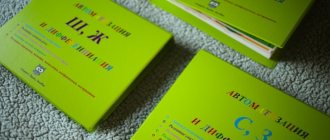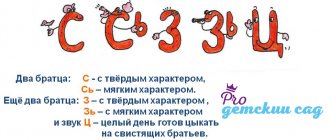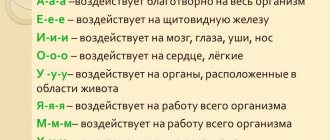Presentation for parent meeting “Speech therapy group”
Alfiya Rakhmatullina
Presentation for parent meeting “Speech therapy group”
Speech for the Assembly
a speech therapy group is opening in our kindergarten , which we are all very happy about, since today there are a lot of a speech therapy group
2. Children with ODD are enrolled in the speech therapy group . OSD is a violation of the formation of all aspects of speech in various complex speech disorders in children with normal intelligence and full hearing. I want to emphasize that these are children with normal intelligence and full hearing.
3. What is the difference between a speech therapy group ?
— Unlike ordinary ones, which can have 25-30 children, speech therapy groups in kindergarten are small - 12-15 people.
— A special daily routine has been developed for speech therapy groups , different from the usual; each speech therapy group has two teachers and its own speech therapist .
— The speech therapist conducts group and individual lessons with children every day.
— Educators also pay attention to learning letters and sounds, teaching children reading, writing, everything a child will need to enter school.
Due to the fact that there are few children in the speech therapy group , it is possible to pay maximum attention to everyone. Therefore, graduates of speech therapy groups often have a wider vocabulary, better developed graphic skills, they can do sound-letter analysis, tell stories from pictures, analyze and generalize without hesitation.
4. Another important difference is that in the speech therapy group the comprehensive development of children is carried out. The children are cared for not only by a speech therapist and parents , but also by teachers, a psychologist, a music director, and a physical education instructor. Together they work in such a way as to help children with speech impairments overcome these impairments.
5. The work of a speech therapist includes not only the correction of sound pronunciation, but the development of the dictionary, the formation of the grammatical structure of speech, the development of the phonetic-phonemic system of the language, literacy training, the development of coherent speech and verbal communication. As I already said, the speech therapist conducts not only individual classes in the speech therapy group, but also group ones . There are no group classes in regular .
Now I want to invite other specialists who will briefly talk about their work in the speech therapy group .
6. Educator: educators conduct group , subgroup and individual lessons with children according to the program and on the instructions of the speech therapist , consolidating the knowledge gained in speech therapy classes ;
systematic monitoring of children’s speech is carried out not only during classes, but also at special moments
7.Psychologist: Speech disorders, to one degree or another, negatively affect the entire mental development of the child and affect his activities and behavior. Some are overly active, others are passive, which is due to the weakness of the nervous system. Aggression and excessive disinhibition are possible. Fatigue is often increased, attention deficit is observed, memory and performance are reduced. Therefore, in the speech therapy group, the psychologist pays special attention to the development of memory, attention, thinking, imagination, as well as the formation of consciousness and improvement of the emotional-volitional sphere.
8. Musical director: With children from the logo group, music classes are conducted with musical-motor, speech-motor and musical-speech games and exercises. Classes include special gymnastics for articulation, breathing and finger exercises, speech therapy chants , communicative games and dancing.
9. Physical education instructor: Children with speech impairments have impaired coordination of movements, weakened attention, and weak muscles. Work is being carried out in the following directions:
staging diaphragmatic-speech breathing;
exercises to develop general and fine motor skills;
plastic-rhythmic gymnastics;
exercises to strengthen the musculoskeletal system, to develop balance, to form correct posture;
mastery of basic norms and rules of a healthy lifestyle
10. Thus, by the end of the second year of study, children will have independent, coherent, grammatically correct speech and communication skills, the phonetic system of the Russian language, and elements of literacy, which forms psychological readiness for learning at school.
11. Thank you for your attention!






